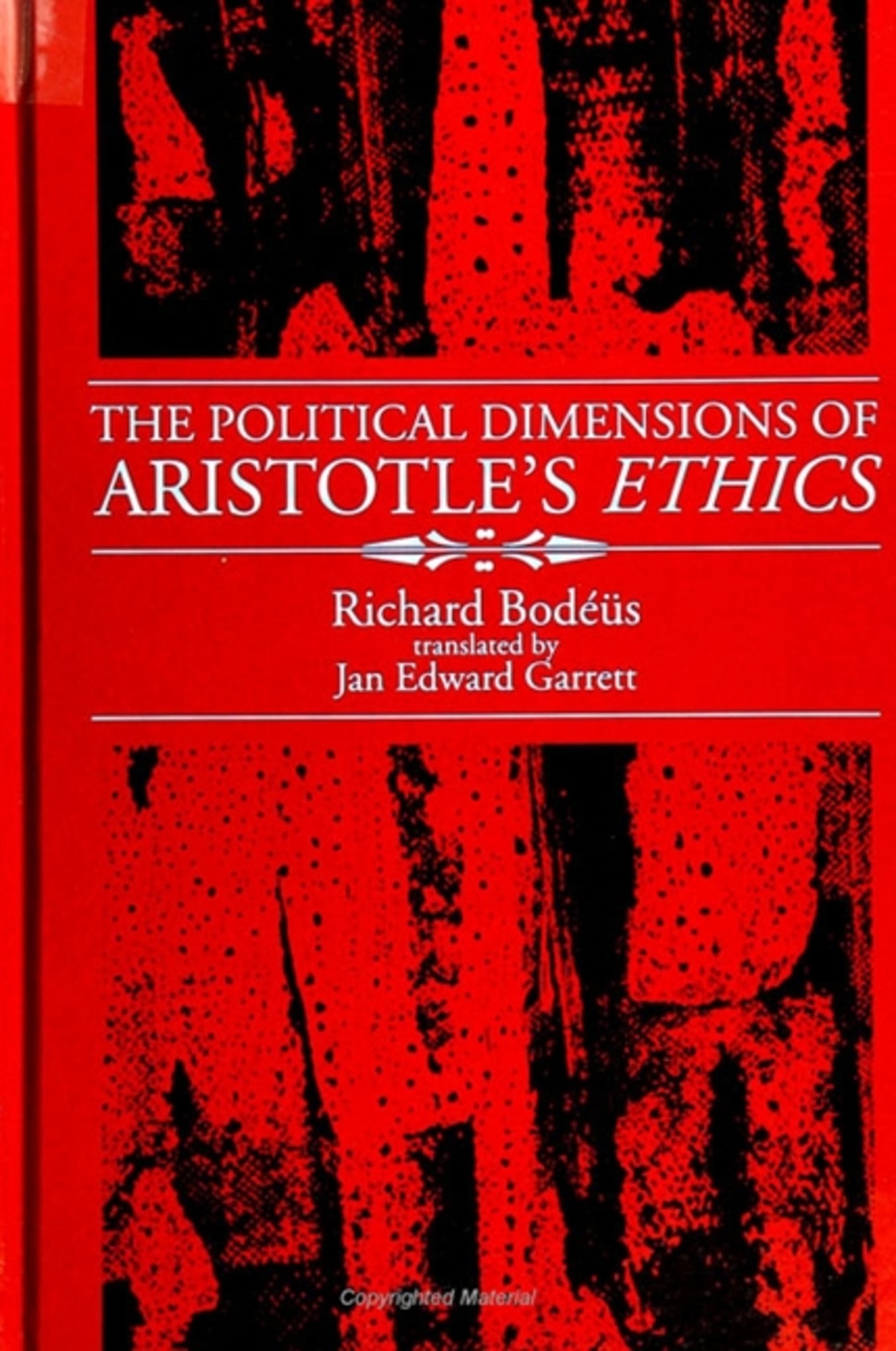We're sorry. An error has occurred
Please cancel or retry.
The Political Dimensions of Aristotle's Ethics

Some error occured while loading the Quick View. Please close the Quick View and try reloading the page.
Couldn't load pickup availability
- Format:
-
18 November 1993

A study in the best tradition of classical scholarship, showing mastery of commentary and scholarship in eight languages, this book argues that the Ethics is integral to a series of politically oriented philosophical addresses aimed at morally mature political leaders. Bodeus's critical review of the major approaches to Aristotle's texts is an excellent introduction to the subject.


"By renewing, with an economy of means and a rare discretion, our reading of an entire panorama of Aristotelianism, The Political Dimensions of Aristotle's Ethics seems to me to be epoch-making in current Aristotelian studies. The astonishing originality of Bodeus's text begins by taking the form of a reassembly: like those dismembered mythic heroes whose parts rearrange themselves of their own accord, the territories hitherto disjoined of the ethical and political continent of Aristotle organized themselves into a system—into an assemblage that makes sense. Hence the strange impression, not of deja-vu, for the originality of Bodeus's work is incontestable, but of astonishment that no one had previously defended the theses he proposes.
"Bodeus provides answers to questions too enormous to have been posed clearly before: For whom did Aristotle write his ethical and political treatises? For Aristotle, it was essential that legislators be developed who would endow the state, no matter what its geographical, political, or social location, with excellent laws that would spread virtue, and thus happiness, in society. The philosopher concerned with ethics and politics thus found that he had been assigned a new task, but one perfectly in agreement with the expectations of the Greeks of his time. Bodeus has produced a great book. After him many opinions about Aristotelian practical philosophy, and consequently also about the very structure of Aristotelianism, have become unsustainable." — Pierre Pellegrin
Author's Preface to the English Edition
Translator's Preface
Abbreviations
Introduction
Chapter 1 In Search of Aristotle's Project
I. Difficulties peculiar to the interpretation of Aristotle
II. 1. The Corpus in the catalog of Andronicus of Rhodes
2. Conceptions inherent in the principles of division
3. The supposed foundations of the systematizing interpretation
III. 1. The first set of interpretive categories
2. A second set of interpretive categories
3. A third set of interpretive categories
4. Provisional balance sheet
IV. 1. The common plan of the Ethics and the Politics : Ancient testimonies
2. Modern exegesis
V. 1. A key-concept:
2. Prudential knowledge
3. Conclusions
VI. The meaning of Aristotle's project
Chapter 2 The Justification for a Political Teaching
I. 1. A privileged document
2. A reflection in the Socratic-Platonic tradition
3. The limits of discourse in education
II. 1. On the insufficiency of discourse for forming the good person
2. On the need for laws
3. On the formation of the lawgiver
III. 1. The purpose of the lectures contained in the Ethics and the Politics
2. The intellectual nature of legislative activity
IV. Philosophy to the aid of the lawgiver
Chapter 3 The Development of Aristotle's Philosophy and Aristotle's Position in the Development of Philosophy
I. The problem
II. 1. Affinities with Politics vii-viii
2. Affinities with the Protrepticus
III. Aristotle and the development of philosophy
Chapter 4 The Public Character of Aristotle's Discourses
I. Introduction
1. The complex nature of the documents
2. Oral communications
3. Lectures of a more or less private nature
4. An opening of the school to the city?
5. Differences with Plato
II. 1. Obscure material circumstances
2. The traces of didactic precaution
3. A basic aspect of the discourse: The methodological statements
Chapter 5 The Audience of the Political Discourses
I. The concerns of the "speaker"
II. Prerequisites for the discourse
1. The limits of language as instrument of knowledge
2. The experience required of the listener
3. The faculty of "comprehension"
III. Education and critical aptitude
1. In music
2. In drawing
3. In medicine
4. Conclusion
IV. The need to be educated
1. The unity of the concept "educated"
2. The deficiencies of the traditional interpretation
3. Results of to be avoided
4. General education and politics
V. The practical relevance of education
1. New preliminaries for the discourse
2. "Good moral habits" and practical education
Conclusion Education, Ethics and Politics
Notes
Bibliography
Index of Passages from Plato and Aristotle
Index of Ancient and Medieval Names
Index of More Important Greek Terms
Subject Index



